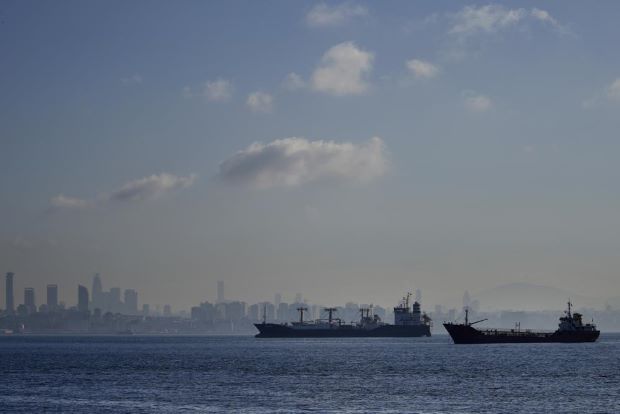Russia re-joins grain deal saying it received security guarantees
By Ivan Nechepurenko, Safak Timur and Matthew Mpoke Bigg
MOSCOW – Russia said Wednesday (2) that it was re-joining a deal that allows the shipment of grain from Ukrainian ports through the Black Sea, easing days of uncertainty over the fate of an agreement that had offered hope to countries facing severe food shortages — and appearing to restore one of the few areas of cooperation between the two countries.
Moscow had suspended its participation in the deal over the weekend after an attack on Russian naval ships in the Black Sea port of Sevastopol that it blamed on Ukraine, and claimed that the incident showed the sea corridor used to transport grain was unsafe for its own ships. There have been no reports of security incidents involving the hundreds of cargo vessels that have transited the sea under the July agreement, carrying more than 10 million tons of grain and other agricultural products to world markets.
It was unclear why Russia decided to re-join the agreement so quickly.
The Russian Defence Ministry said it had received written guarantees from Ukraine that the waters and ports used by the grain ships would not be used “for military operations against the Russian Federation”.
But Ukrainian officials suggested that Russia re-joined the deal because it saw that other parties were committed to continuing without Moscow’s involvement. At least 15 grain ships have departed from Ukraine since Moscow announced it was pulling out of the agreement Saturday.
“A ‘blackmailer’ with Russian roots is inferior to those who are stronger and know how to clearly state their position,” Mykhailo Podolyak, an adviser to Ukraine’s president, Volodymyr Zelenskyy, tweeted after Russia re-joined.
Moscow had grown dissatisfied with the deal well before the attack over the weekend because it was having trouble selling its own agricultural products. The deal allows it to do that, but Russia said its exports were struggling because potential trading partners feared running afoul of Western sanctions. It was not immediately clear whether Russia’s concerns had been addressed.
Ukraine is a major exporter of grain and other agricultural products, but after Moscow’s full-scale invasion in February, Russia’s navy used its dominance in the Black Sea to block Ukraine’s exports. In addition to hurting Ukraine’s economy, this helped drive global grain prices sharply higher. That made food purchases much more difficult for dozens of countries — including Afghanistan, Ethiopia, Yemen, Somalia and South Sudan — that are already facing food shortages, and in some cases famine.
The July agreement, known as the Black Sea Grain Initiative, addressed the issue by allowing Ukraine’s exports to restart, with cargo ships moving through a sea corridor to Istanbul. There, the ships would be inspected by officials from Russia, Ukraine, Turkey and the United Nations, helping reassure Moscow that the shipping lanes would not be used to funnel arms to Ukraine.
Since suspending its participation in the deal over the weekend, Russia had ceased involvement in the inspections, raising questions over whether it would block further shipments. A total of 15 ships previously authorized under the agreement departed from Ukraine on Monday and Tuesday; none had been scheduled for Wednesday.
President Recep Tayyip Erdogan of Turkey had pushed for Russia to re-join the deal. On Wednesday, he said in a televised address that he had spoken a day earlier with President Vladimir Putin of Russia. After that, Sergei Shoigu, Russia’s defence minister, had called his Turkish counterpart to say that “the grain shipments will go on as it used to be as of noon today,” Erdogan said.
Amir M. Abdulla, the United Nations’ coordinator for the initiative, said in a tweet that he welcomed Russia’ decision and was “grateful for Turkish facilitation.”
A series of attacks against Russian targets in the Black Sea and in occupied Crimea — notably the Oct. 8 explosion on a bridge linking Russia to Crimea — has undermined Russian control over the waters. Russia had threatened for weeks to pull out of the grain deal, in part, analysts said, to seek leverage.
-New York Times



Comments are closed, but trackbacks and pingbacks are open.